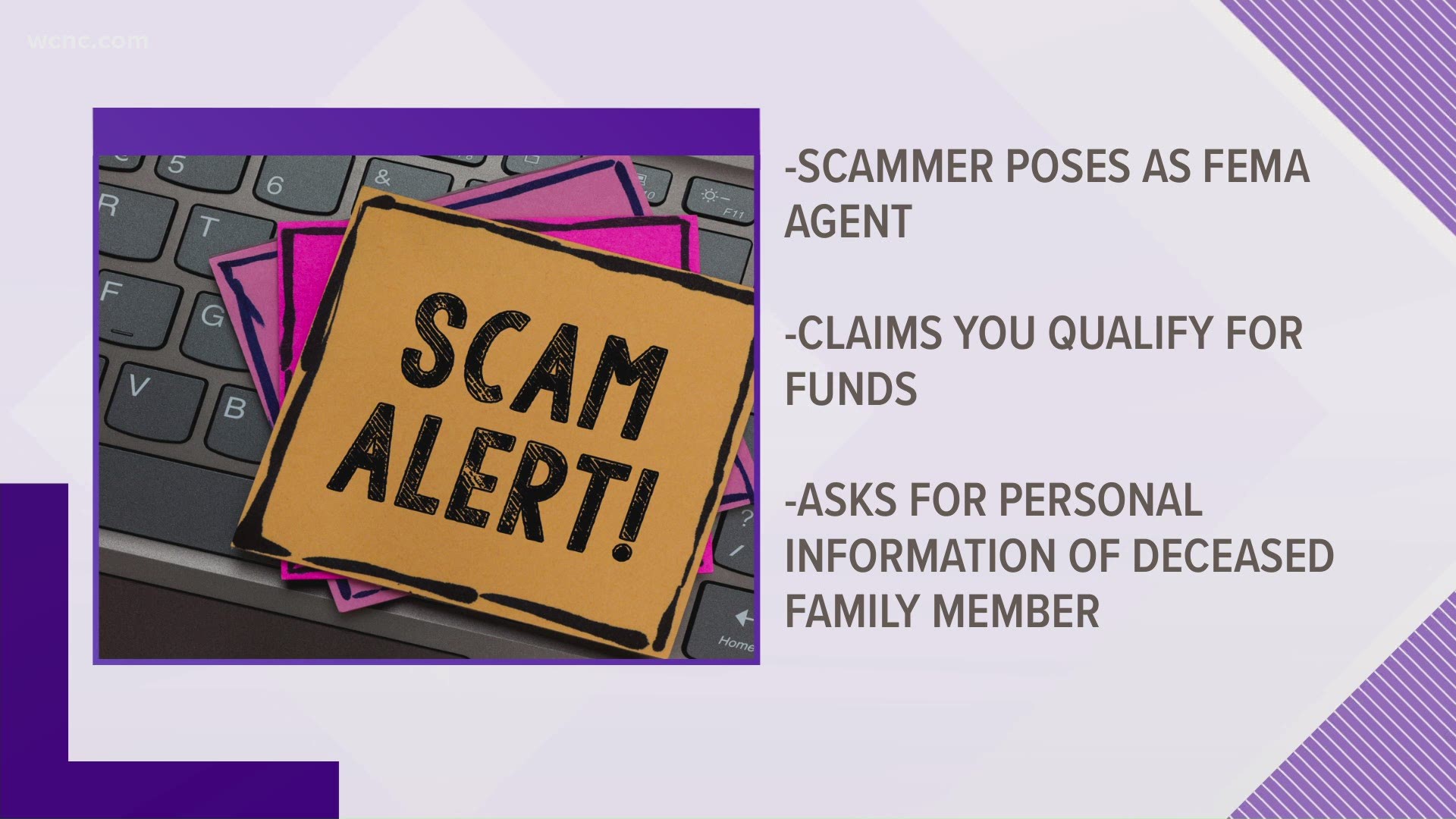CHARLOTTE, N.C. — A new United States federal program is helping to pay funeral expenses of people who died from COVID-19.
Unfortunately, according to the Better Business Bureau, scammers are using this as a chance to steal personal information from grieving family members.
How the Scam Works
You get a call, email, or text message from someone who claims to be from the Federal Emergency Management Agency (FEMA) or another government agency. The scammer is allegedly reaching out as part of the official COVID-19 Funeral Assistance program.
This “government official” claims that you qualify for financial assistance. But first they need information to “register” you for the program. Scammers may ask for the name, birth date, and social security number of a deceased family member. Sharing this information can lead to identity theft.
Not all scammers impersonating FEMA are capitalizing on the funeral program. In another version of this scam, con artists claim to be FEMA representatives following up on your COVID-19 vaccine. This is another ploy to get personal information.
“I was called by a man who said he was ‘FEMA,’” reported one person to Scam Tracker. “He wanted me to give him my Social Security number. He claimed I did not fill out all the paperwork when I got vaccinated.”
How to Spot this Scam
- Stay calm. No matter what scammers claim, you don’t need to take immediate action. The real version of the FEMA program has no deadline to apply. Also, no cap on funding has been set, so funds are not going to run out.
- Be wary of out-of-the-blue calls, emails or text messages claiming to be from the government. In general, the government will not contact you using these methods unless you granted permission. This FEMA program is no exception. They will not contact you unless you called the agency beforehand or applied for funeral assistance.
- Think something seems suspicious? Reach out to the agency directly. If you doubt that a FEMA representative is legitimate, hang up the phone or stop emailing. Then, report the suspicious calls or messages. Contact to the FEMA Helpline at 800-621-3362 or the National Center for Disaster Fraud Hotline, 866-720-5721. You also may contact local police.
- Check for look-alikes. Research to see if the government agency or organization that contacted you actually exists. Scammers often make up names of agencies and/or grants.
- Do not pay any money for a "free" government grant or program. It is not really free if there is a fee involved. A real government agency will not ask for an advanced processing fee. Instead, find out if the agency is legitimate by checking grants.gov.

